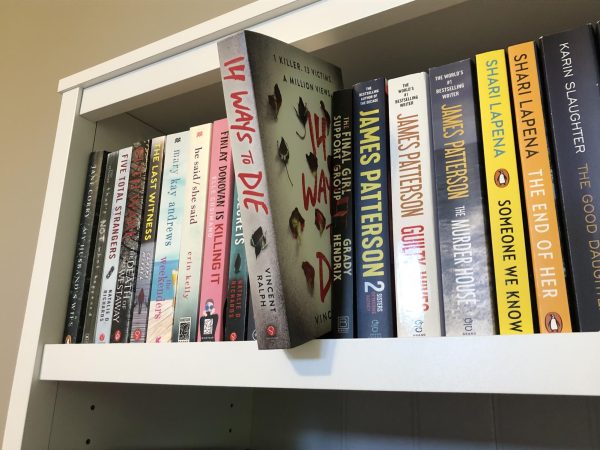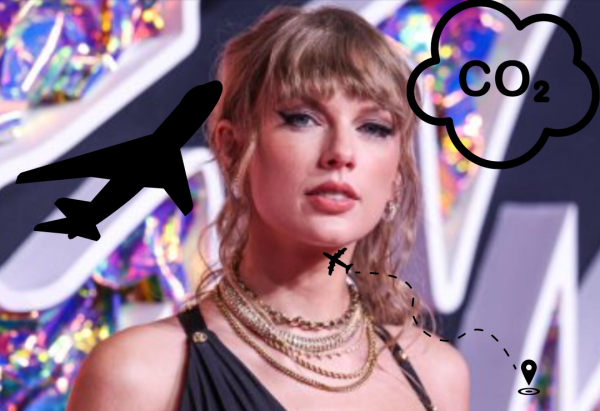A label in disguise
A review of Lana Del Rey’s “A&W”
“Did you know that there’s a tunnel under Ocean Blvd” is Lana Del Rey’s ninth studio album, following her most recent album in 2021.
Haunting, emotional, and intoxicating are just a few words that encapsulate Lana Del Rey’s latest single, “A&W.” Co-written and produced by Jack Antonoff, the seven-minute song is the second track released on the singer’s upcoming album, “Did you know that there’s a tunnel under Ocean Blvd,” which debuts on Mar. 24.
Not to be mistaken for a song about root beer, the duality of the title acts as both a symbol of Del Rey’s Americana persona, with references to the chain restaurant, while also standing as an acronym for “American Wh*re,” the original title of the track.
The song begins with faded acoustic instrumentals, a gothic piano melody, and a whispering of the words, “I haven’t done a cartwheel since I was nine/ I haven’t seen my mother in a long, long time.” Reflecting on her childhood, Del Rey describes the relationship between her and her mother. The relationship feels distant and suppressed, something that she had referenced previously in her album, “Blue Banisters.” It’s clear they had a complicated relationship, with the lyrics insinuating that they didn’t have a picture perfect mother-daughter bond.
The transition between her adolescence and adulthood guides us into the song’s overarching storyline of the person she once was, to the person she has become, “Look at the length of my hair and my face, the shape of my body/ Do you really think I give a damn/ What I do after years of just hearing them talking?” Her voice is exasperated and breathy, shining a light onto the exhaustion she experienced after feeling objectified throughout her career. Her angelic vocals paired with the dismissive delivery of her lyrics foreshadow the seriousness of the chorus and the journey she takes to get there.
Driving towards the chorus of the song, Del Rey’s provocative lyrics suggest that her romantic life isn’t directed at finding love, rather that it’s passionless and casual, embracing the idea that she’s capable of exploring her sensuality without fear of judgment, “It’s not about havin’ someone to love me anymore/ This is the experience of bein’ an American wh*re.”
The second verse expands on this, and opens the door for an epiphany Del Rey has about her life and what people think about her. Instead of succumbing to hateful comments about her relationships and her appearance, she takes on a new perspective, embracing the label she was given. Taking a term that was originally intended as an offensive label towards women, Del Rey crowns herself with the title in a meaningful and poetic way.
Four minutes into the song, it transitions from a sullen ballad about the societal expectations of women, and turns into an ghoulish anthem. The beat drops, and Del Rey layers eerie vocals onto a charming folk-rap mix. Known for being a storyteller, she sings about a man named Jimmy, a character who appears charming yet deceptive, “Love me if you love or not, you can be my light/ Jimmy only love me when he wanna get high.” This ties back into the first half of the song, and how she doesn’t feel the need to be in a really emotional, loving and compassionate relationship. Someone of Jimmy’s nature satisfies her current needs, and doesn’t leave room to entertain complexity or sincerity.
Reviving the harmonious strings from one of her most popular songs, “Norman F*cking Rockwell,” this song will most likely please long-time fans of her past work. Her whiny cry referencing her old song is interwoven with the heavy beat of her new song, creating an elegant and unexpected foundation for a new era of Del Rey’s music.
While the song may seem off-putting due to its excessive length, it utilizes its time to create an out of body experience. It’s repetitive, extravagant, and creative. Del Rey addresses what some may view as a taboo topic in such a nonchalant way that it makes you focus on the more subtle aspects of the song. As a casual listener, it’s easy to see that Del Rey is bringing something new to the table. An innovative and genre-breaking piece holds high anticipation for what her album has in store for both new and old audiences.
Your donation will support the student journalists of West Linn High School. Your contribution will allow us to continue to produce quality content by purchasing equipment, software, and continuing to host our website on School Newspapers Online (SNO).

Sydney McCrone, senior, is the Social Media editor for wlhsNOW.com, and has been channeling her love of writing since her freshman year. When she is...


























![Game, set, and match. Corbin Atchley, sophomore, high fives Sanam Sidhu, freshman, after a rally with other club members. “I just joined [the club],” Sidhu said. “[I heard about it] on Instagram, they always post about it, I’ve been wanting to come. My parents used to play [net sports] too and they taught us, and then I learned from my brother.”](https://wlhsnow.com/wp-content/uploads/2024/03/MG_7715-2-1200x800.jpg)





![The teams prepare to start another play with just a few minutes left in the first half. The Lions were in the lead at halftime with a score of 27-0. At half time, the team went back to the locker rooms. “[We ate] orange slices,” Malos said. “[Then] our team came out and got the win.”](https://wlhsnow.com/wp-content/uploads/2023/10/IMG_2385-1200x800.jpg)





![At the bottom of the third inning, the Lions are still scoreless. Rowe stands at home plate, preparing to bat, while Vandenbrink stands off to the side as the next batter up. Despite having the bases loaded, the team was unable to score any runs. “It’s just the beginning of the season. We’re just going to be playing out best by June, [and] that’s where champions are,” Rowe said.](https://wlhsnow.com/wp-content/uploads/2024/03/IMG_3077-1200x900.jpg)












































































